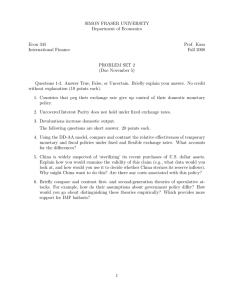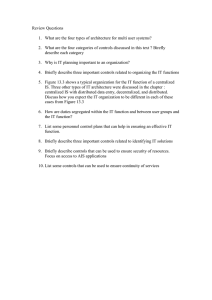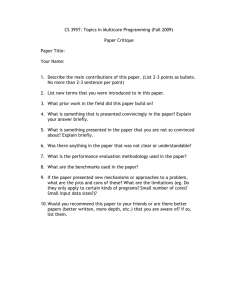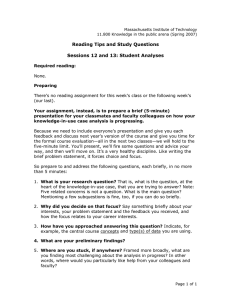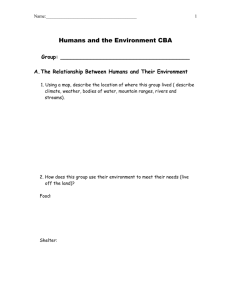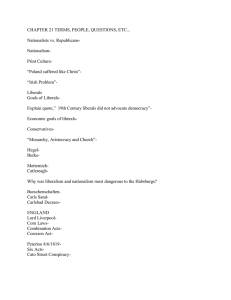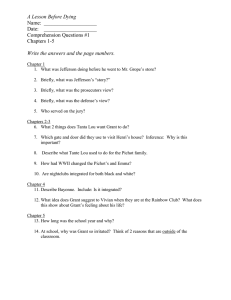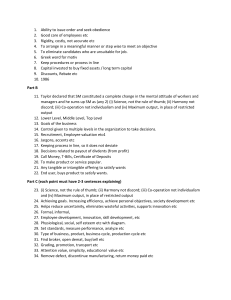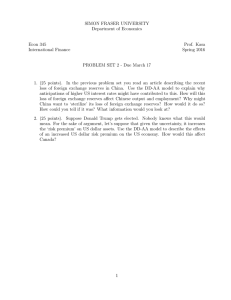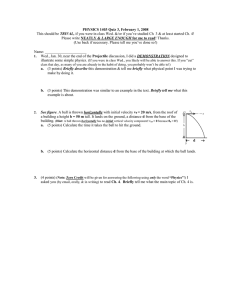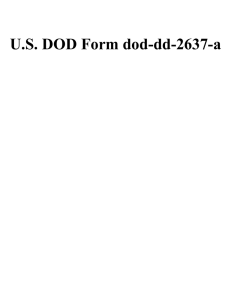SIMON FRASER UNIVERSITY Department of Economics Econ 345 Prof. Kasa
advertisement
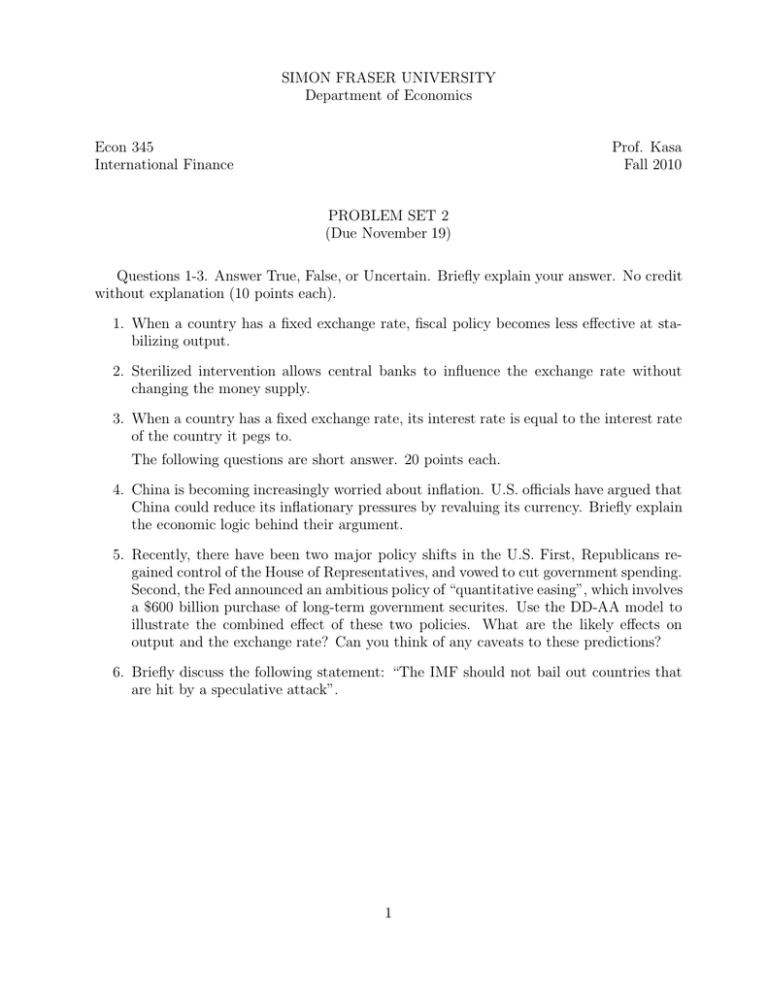
SIMON FRASER UNIVERSITY Department of Economics Econ 345 International Finance Prof. Kasa Fall 2010 PROBLEM SET 2 (Due November 19) Questions 1-3. Answer True, False, or Uncertain. Briefly explain your answer. No credit without explanation (10 points each). 1. When a country has a fixed exchange rate, fiscal policy becomes less effective at stabilizing output. 2. Sterilized intervention allows central banks to influence the exchange rate without changing the money supply. 3. When a country has a fixed exchange rate, its interest rate is equal to the interest rate of the country it pegs to. The following questions are short answer. 20 points each. 4. China is becoming increasingly worried about inflation. U.S. officials have argued that China could reduce its inflationary pressures by revaluing its currency. Briefly explain the economic logic behind their argument. 5. Recently, there have been two major policy shifts in the U.S. First, Republicans regained control of the House of Representatives, and vowed to cut government spending. Second, the Fed announced an ambitious policy of “quantitative easing”, which involves a $600 billion purchase of long-term government securites. Use the DD-AA model to illustrate the combined effect of these two policies. What are the likely effects on output and the exchange rate? Can you think of any caveats to these predictions? 6. Briefly discuss the following statement: “The IMF should not bail out countries that are hit by a speculative attack”. 1
